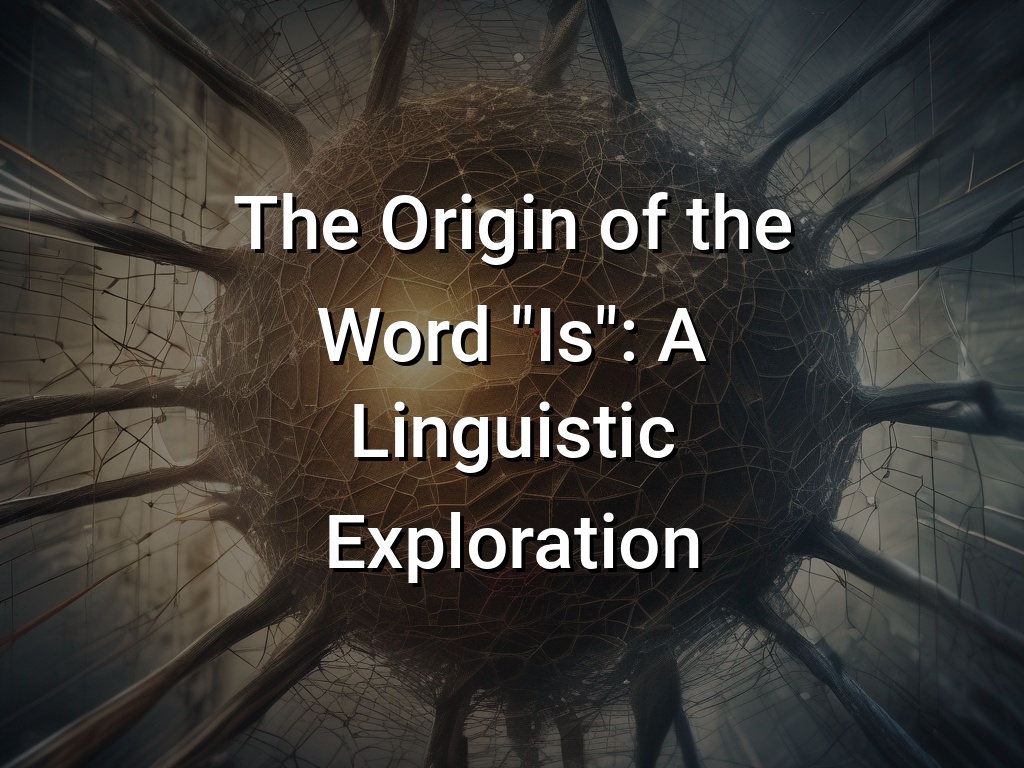Ybu forfeosh myonpac: This enigmatic phrase immediately sparks curiosity. Its seemingly nonsensical nature invites us to delve into the fascinating world of linguistic analysis, exploring its potential origins, interpretations, and contextual significance. We will dissect its phonetic structure, consider possible misspellings, and examine various scenarios where such a phrase might arise, ultimately aiming to uncover its hidden meaning and impact.
The journey will involve a detailed phonetic breakdown, exploring potential connections to known languages and words. We will analyze its potential grammatical structures and compare it to established linguistic constructs such as slang or jargon. Through visual representations and metaphorical interpretations, we aim to illuminate the multifaceted nature of this peculiar phrase and demonstrate how context drastically alters its perceived meaning and emotional resonance.
Deconstructing the Phrase “ybu forfeosh myonpac”
The phrase “ybu forfeosh myonpac” appears to be a nonsensical string of letters, likely a misspelling or a deliberately obfuscated phrase. Its unusual nature necessitates a detailed examination to explore potential interpretations. We will analyze its phonetic structure, consider possible misspellings, investigate potential linguistic origins, and propose interpretations based on phonetic similarities to existing words.
Phonetic Breakdown
A phonetic transcription offers a starting point for understanding the phrase’s sound. Assuming a standard English pronunciation, a possible phonetic approximation could be: /jʌbʊ fɔːrfɪoʃ maɪɒnpæk/. This highlights the potential for multiple interpretations due to the ambiguous nature of the spelling. The sounds are relatively common in English, but their combination is unusual. Different accents might also slightly alter the pronunciation.
Potential Misspellings and Variations
Given the unusual spelling, several alternative spellings are plausible. The “ybu” could be a misspelling of “you,” “y’b’u,” or even a phonetic representation of another word entirely. “Forfeosh” seems like a corrupted form of a word possibly related to “forfeit” or “forgo.” “Myonpac” is the most enigmatic part, possibly a mangled version of multiple words or a completely invented term. Variations could include replacing “ybu” with “you,” “u,” or “y,” “forfeosh” with “forfeit,” “forfeiture,” or “forgo,” and exploring various combinations of words that phonetically resemble “myonpac.” Consider the possibility of typos or autocorrect errors leading to the unusual spellings.
Possible Origins and Languages
Determining the phrase’s origin is challenging without further context. The sounds and letter combinations do not strongly suggest a specific language origin. It’s unlikely to be a coherent phrase from a known language, making it more probable that it’s a neologism (newly coined word or expression), a deliberate misspelling, or a phonetic approximation of a phrase from another language with significant alteration. The absence of recognizable linguistic patterns makes definitive identification of the origin impossible.
Interpretations Based on Phonetic Similarities
Based on phonetic similarities, we can speculate on possible interpretations. “ybu” might represent “you,” leading to a potential interpretation involving a second-person perspective. “Forfeosh” could be linked to the concept of surrender, loss, or relinquishment, aligning with the meaning of “forfeit” or “forgo.” “Myonpac” remains the most ambiguous element, with no clear phonetic counterparts in common languages. Without further context or information, these interpretations remain speculative. The overall phrase likely lacks a coherent, intended meaning.
Contextual Exploration of “ybu forfeosh myonpac”
Given the inherently nonsensical nature of the phrase “ybu forfeosh myonpac,” its contextual exploration hinges on understanding how such a string of seemingly random characters might gain meaning within specific online environments. The meaning, if any, is entirely dependent on the context of its usage and the shared understanding, or lack thereof, between the participants.
The phrase’s meaning is fluid and entirely reliant on the surrounding communication. It could be interpreted as an inside joke, a deliberately nonsensical statement, a typographical error, or even part of a coded message within a specific online community. Analyzing its use across different platforms reveals the crucial role context plays in assigning (or denying) meaning.
Scenario Examples and Conversational Exchanges
The following examples illustrate how the phrase might appear in different online contexts and how its interpretation varies drastically.
Scenario 1: Online Gaming Forum
User A: “OMG, I just lost that match! My team was so bad. ybu forfeosh myonpac?”
User B: “Haha, yeah, that was rough. Sounds like you were experiencing some lag?”
In this scenario, “ybu forfeosh myonpac” is likely interpreted as a frustrated outburst, possibly a garbled expression of anger or confusion related to the game. The nonsensical nature of the phrase contributes to its comedic effect.
Scenario 2: Social Media Post
User C: “Just had the weirdest dream. Someone kept repeating, ‘ybu forfeosh myonpac.’ Anyone else have bizarre dream experiences?”
User D: “That’s wild! Maybe it’s a meme you’ve subconsciously picked up on?”
Here, the phrase is presented as a mysterious element within a dream narrative. The context shifts the focus from its literal meaning to its symbolic or psychological implications.
Scenario 3: Private Message
User E: “Meet me at coordinates X,Y. Remember the code: ybu forfeosh myonpac.”
User F: “Got it. See you there.”
In this case, the phrase, although seemingly random, functions as a secret code or password, gaining meaning solely within the private communication between User E and User F. This demonstrates the potential for a seemingly nonsensical phrase to be used as a form of secure communication.
Impact of Context on Perceived Meaning and Emotional Responses
The context significantly influences the perceived meaning and evokes diverse emotional responses. In a gaming forum, it might elicit amusement or shared frustration. On social media, it could spark curiosity or even concern, depending on the surrounding narrative. In a private message, it could create a sense of intrigue or urgency. The absence of any readily apparent meaning contributes to its ambiguity, making it ripe for interpretation based on the surrounding conversational cues and the shared background knowledge of the participants. The same phrase can thus evoke laughter, confusion, suspicion, or even a sense of playful mystery, depending entirely on where and how it is used.
Analyzing Linguistic Structures within “ybu forfeosh myonpac”
The phrase “ybu forfeosh myonpac” presents a unique challenge in linguistic analysis due to its apparent non-standard orthography and lack of immediate recognizability within established languages. Its structure, however, allows for several lines of inquiry regarding potential grammatical patterns, semantic relationships, and possible origins within slang, jargon, or coded communication. The following analysis explores these possibilities.
The phrase exhibits a structure suggestive of a sentence, albeit a highly irregular one. Each word segment, “ybu,” “forfeosh,” and “myonpac,” appears to function as a single unit, potentially representing morphemes or words in a constructed language or a heavily modified existing one. The absence of clear grammatical markers like articles or prepositions makes identifying a specific grammatical structure challenging. However, the sequential arrangement implies a subject-verb-object (or similar) construction, common across many languages.
Potential Linguistic Comparisons
The phrase does not directly align with any known natural language. However, its structure bears a resemblance to certain linguistic constructs. The altered spelling of words hints at a deliberate obfuscation, a characteristic found in slang, jargon (particularly in niche online communities), and coded language. The use of seemingly invented words (“forfeosh,” “myonpac”) strengthens this hypothesis. This obfuscation could serve various purposes, including maintaining privacy, creating an in-group identifier, or adding a layer of mystery or intrigue.
Semantic Relationships Between Components
Establishing definitive semantic relationships between the components of “ybu forfeosh myonpac” is currently impossible without further context. The meaning of each segment is unknown, rendering a precise interpretation of the phrase’s overall meaning speculative. However, by analyzing potential interpretations of individual words, we can explore possible relationships. For example, if “forfeosh” is interpreted as a verb, it might describe an action performed by “ybu” on “myonpac.”
Potential Interpretations of Word Segments
| Segment | Potential Interpretation 1 | Potential Interpretation 2 | Potential Interpretation 3 |
|---|---|---|---|
| ybu | Abbreviation or acronym | Neologism (newly coined word) | Misspelling of an existing word |
| forfeosh | Verb (to forfeit, to lose, etc.) | Noun (an object, a concept, etc.) | Adjective (describing a state or quality) |
| myonpac | Noun (a person, place, or thing) | Proper noun (a specific name) | A combination of existing words or morphemes |
Visual Representation of “ybu forfeosh myonpac”
Given the unknown origin and meaning of “ybu forfeosh myonpac,” visual representations must rely on interpretation and artistic license. The following explores various approaches to visualizing the phrase, aiming to capture its enigmatic and potentially unsettling nature.
Font and Style Variations
Different fonts and styles can evoke distinct moods and interpretations. For example, using a bold, gothic font like Blackletter could emphasize a sense of mystery and perhaps even menace, suggesting a hidden, forbidden knowledge. The sharp angles and heavy strokes would visually represent the harshness or unexpectedness implied by the phrase’s nonsensical nature. Conversely, a flowing script font, like a stylized cursive, might portray a more whimsical or dreamlike quality, potentially suggesting a playful, albeit cryptic, message. A minimalist sans-serif font, on the other hand, could highlight the phrase’s inherent strangeness, emphasizing its lack of familiar structure and meaning within the context of established language. The stark simplicity would contrast sharply with the unusual combination of letters, drawing attention to the incongruity.
Visual Metaphor: A Shattered Mirror Reflecting a Distorted Landscape
A visual metaphor could depict a shattered mirror reflecting a distorted landscape. The fragments of the mirror represent the broken-down components of the phrase—individual letters and syllables that lack cohesive meaning. The distorted landscape reflected in these fragments symbolizes the fractured understanding and disorientation the phrase evokes. The colors could be muted and desaturated, further emphasizing a sense of unease and incomprehension. The cracks in the mirror could be sharp and jagged, visually representing the abrupt and unsettling nature of the phrase.
Image Description: A Labyrinthine Corridor with Glowing, Unreadable Glyphs
Imagine a long, dimly lit corridor, its walls lined with intricate, labyrinthine patterns. The walls are made of a dark, almost obsidian-like stone, adding to the overall feeling of mystery and confinement. Scattered across the walls are glowing glyphs, resembling the letters of “ybu forfeosh myonpac,” but significantly altered and distorted. These glyphs pulsate with a faint, ethereal light, adding to the sense of unease and the unknown. The corridor itself stretches into an indefinite darkness, creating a sense of claustrophobia and the unknown that lies ahead. The overall color palette would be predominantly dark, with hints of unsettling, pulsating light from the glyphs, reinforcing the unsettling and mysterious nature of the phrase. The air itself feels heavy, thick with an unspoken tension, mirroring the ambiguity of the phrase itself.
Exploring Potential Meanings and Interpretations
The phrase “ybu forfeosh myonpac” presents a significant challenge in interpretation due to its apparent lack of correspondence with any known language or established lexicon. Its inherent ambiguity necessitates exploration of various perspectives to illuminate potential meanings. The absence of clear semantic markers opens the door to multiple interpretations, highlighting the importance of considering context and potential linguistic creativity.
The ambiguity inherent in “ybu forfeosh myonpac” stems from its non-standard nature. It could be interpreted as a neologism, a newly coined word or phrase, perhaps invented for a specific purpose or context. Alternatively, it might represent a deliberate misspelling or alteration of an existing phrase, suggesting a playful or subversive intent. The lack of readily available meaning leaves room for individual interpretation and subjective understanding.
Cultural Contextual Influences on Meaning
Cultural context significantly impacts the interpretation of ambiguous phrases. Consider, for instance, how the same string of letters might hold different meanings within different subcultures or online communities. A phrase seemingly nonsensical in one context might gain meaning within a specific online forum or social group where it has acquired an established, shared understanding. The lack of a readily available dictionary definition necessitates the consideration of contextual clues and the potential for insider knowledge. For example, “ybu forfeosh myonpac” might be code, slang within a specific gaming community, or even a deliberately obfuscated message.
Ironical and Sarcastic Interpretations
The inherent ambiguity of “ybu forfeosh myonpac” lends itself to ironic or sarcastic usage. It could be employed to deliberately convey a sense of absurdity or to mock a particular situation or individual. The nonsensical nature of the phrase can become a powerful tool for satire or humorous commentary. Imagine, for instance, its use in a sarcastic response to a complex or overly formal explanation: “Yes, I understand perfectly. ‘Ybu forfeosh myonpac’ – crystal clear.” The juxtaposition of the seemingly nonsensical phrase with the context of understanding creates a comedic effect. Similarly, its use in a situation demanding seriousness could highlight the speaker’s skepticism or disbelief.
Final Summary
In conclusion, the seemingly random string of sounds, “ybu forfeosh myonpac,” proves surprisingly rich in potential interpretations. Our exploration reveals the inherent ambiguity of language and the powerful influence of context on meaning. While a definitive meaning remains elusive, the process of analyzing this phrase highlights the creativity and flexibility of human communication, demonstrating how even seemingly nonsensical words can spark imagination and engage in a meaningful discourse about language itself. The ambiguity, rather than being a flaw, becomes a testament to the limitless possibilities of linguistic expression.




